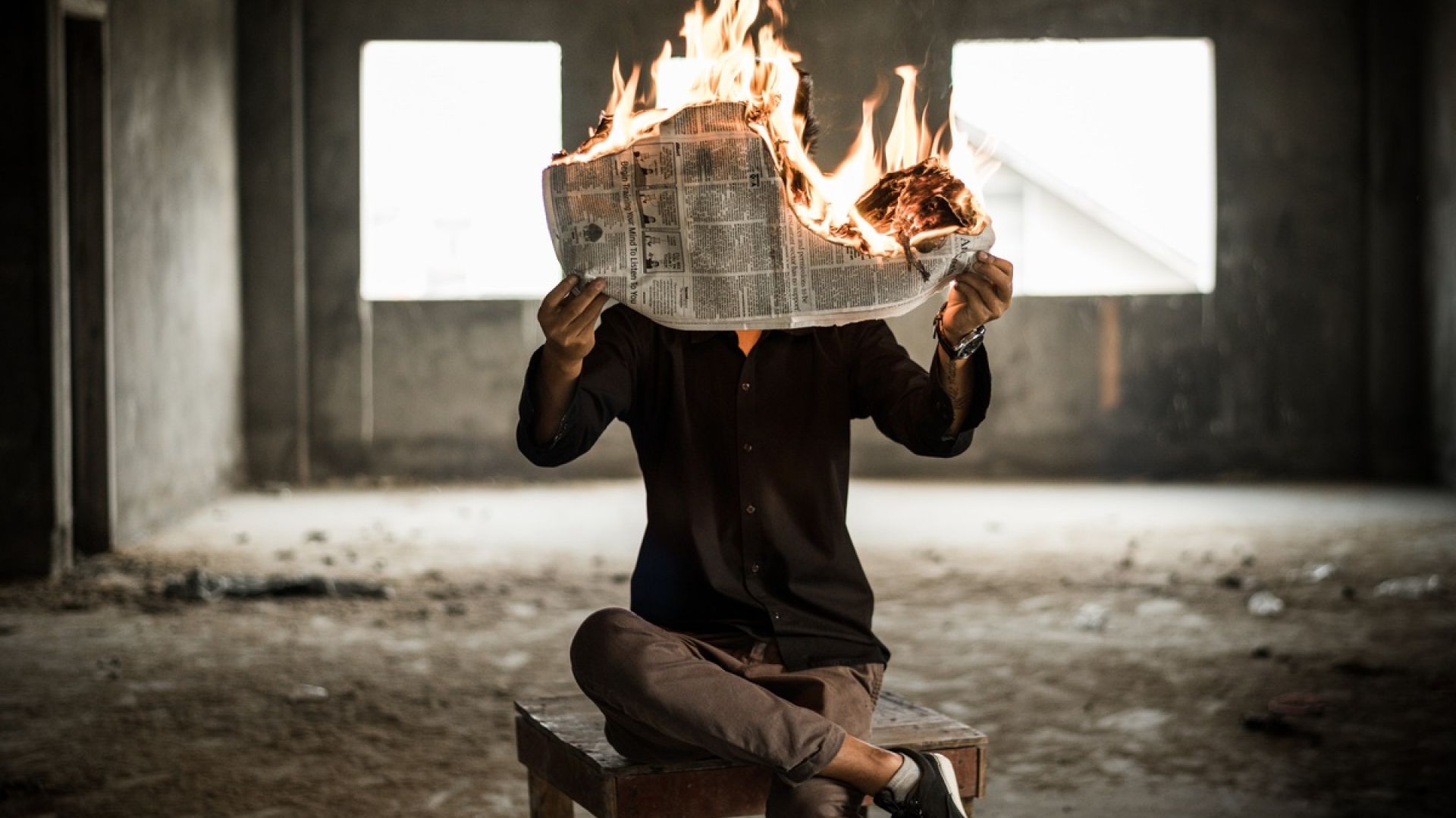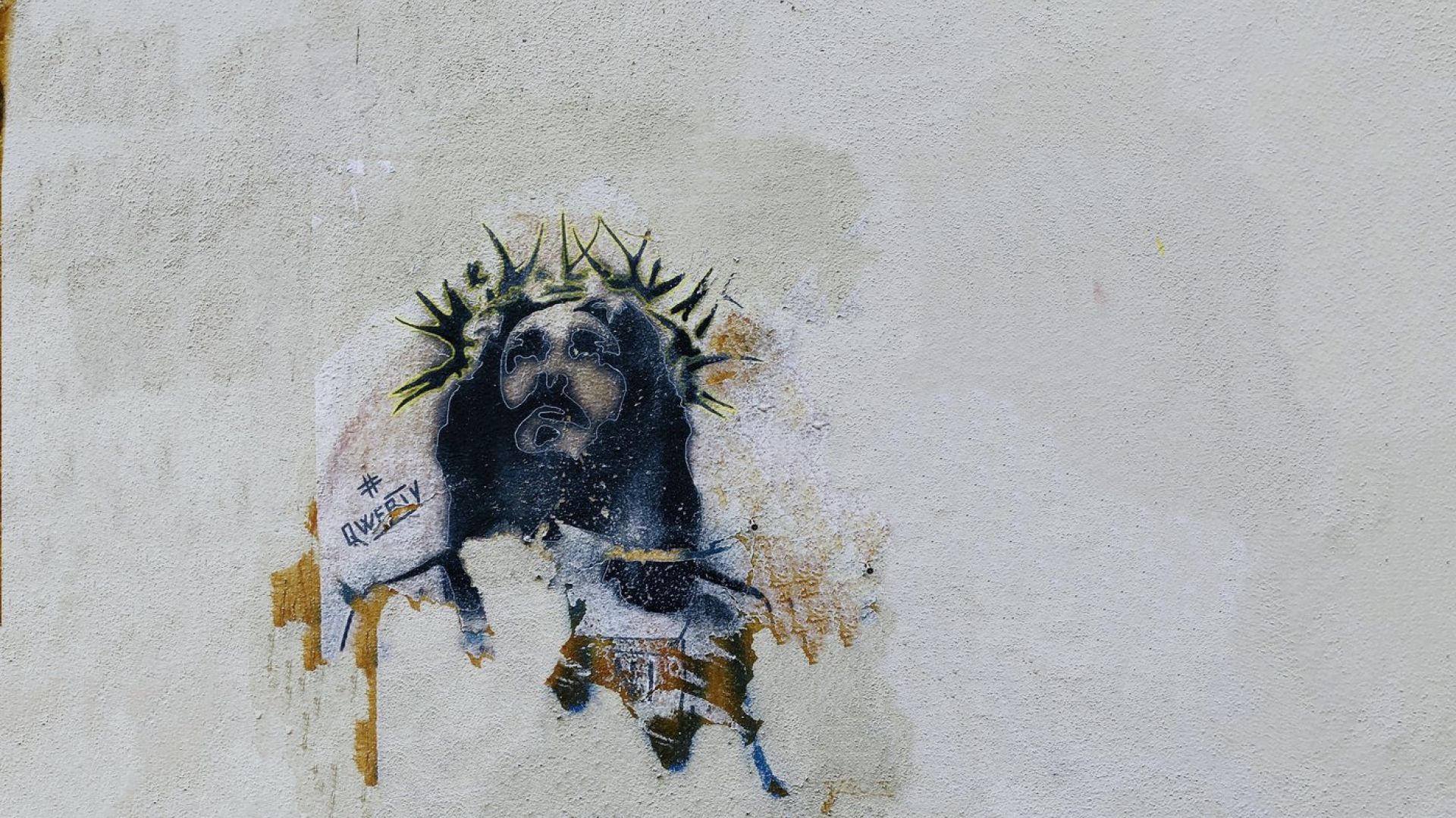
Decaying Civilization: A Brief Sketch of What is Wrong With Our (Western) Society

What is wrong with society?
So that we can understand it, and hopefully rectify it, it's important to understand why is it such a mess that seems to be getting worse.
What I'm aiming to tackle in this short survey are the core issues that are making the problem worse. If were were healthy on these fronts, we would be doing things in our society to make it and the people in it healthier. Instead, we're doing things to make it worse. Why?
In this essay, we're going to survey the following seven layers that have broken society and co-opted us into willing participants of that brokenness.
- Doing Life Without the Source of Life
- Moral Poverty
- Ideology
- The “Autonomous Self”
- Our Corrosive Roles
- The Totalitarian Machine
- Driving the Machine
But first, a few thoughts on a healthy standard by which to assess society.
Sickness Requires Clarity on The Standard of Health
If there is no standard — clarity, and picture of health — it is impossible for us to identify what is sickness and how that compares to the ideal.
As I share the following insights, it's important to understand that I look at society through the eyes of a Christian whose primary allegiance is to Jesus Christ. It is in his example that I see and understand who God is.
God is a thriving community (a small society) of love, self-sacrifice, and justice. It is in the community of God that we find ideal attributes and values that we seek to mimic inside of our society; a much larger family. It's also important to recognize that we humans are all loving expressions of the community of God and he desires that we stay and thrive inside that community, even when we want to leave it (he pursues us to come back into the fold).
Ideally, we have such a selfless and generous society that we're not dealing with deep brokenness and evil. But the reality before us humans is one filled with tragedy instead of comedy. It's a life and society of suffering instead of health, joy, and healing. It is in our defiance and departure of God's community, that we begin to see the early work of society degenerating. This is the hell inside of us manifesting outside of us.
"According to the Bible, sin is doing without God. Sin is not wrongdoing, it is wrong being, deliberate and emphatic independence of God." - Oswald Chambers, Biblical Ethics

1. Humanity Has Broken the Relationship With Our Loving Creator & Sought Out Evil
Sin. What is it? How does it work?
For this, I bring up this wonderful video from the Bible Project, which explores the idea of "missing the mark" and "moral failure". These are the key insights from the video below, that stuck out to me personally.
“Every human is an image of God, a sacred being who represents the creator and deserving of respect.
Sin is a failure to love God and others and not treating them with the honor they deserve.
Sin against people is a sin against God.
And sin is more than doing bad things, it describes how we easily deceive ourselves and spin illusions to redefine our bad decisions as good ones.”
I'd encourage you to watch the entire 6-minute video to get a deeper grasp of how sin plays a foundation role in our corruption; personally and as a society.
Oswald Chambers, from Biblical Ethics, shares a few insights on the nature of sin that I also find helpful to reflect upon.
Are we willing to surrender our will?
"Every one of us... will denounce selfishness, but who amongst us will denounce my right to myself?"
This concept of denouncing my right to myself is not an easy one for me to grasp so I asked Chat GPT to help me understand it. Here's what it said.
"The phrase "denouncing my right to myself" essentially means surrendering one's own will, desires, and self-centeredness in order to fully submit to the will of God. It is a fundamental concept in Christian discipleship and spiritual growth. "Self-Surrender. God's will over my will. Recognizing God as the ultimate authority.""
Because we have broken the relationship with God, we cannot unbreak it ourselves. That rectification must come from God. But instead of embracing that healing from God, we continue onward without him.
"To be in sin... means being catastrophically separated from the eternal love of God. It means to be on the other side of an impassable barrier of exclusion from God's heavenly banquet. It means to be helplessly trapped inside one's own worst self, miserably aware of the chasm between the way we are and the way God intends us to be. It means the continuation of the reign of greed, cruelty, rapacity, and violence throughout the world..." - Flemming Rutledge, The Crucifixion
The more we resist his healing work and embrace living without him, the more we contribute to corrupting ourselves, our families, our communities, and our society. We think we're doing alright, but we're terminal and don't want to know it.

2. We’re Morally Impoverished While Thinking We’re Morally Wealthy
We live in moral trash dumps. We've built a city of the garbage. And we think we're wealthy kings.
We're delusional.
A large portion of our modern Western moral reasoning is tribal. Our lives matter but your tribe’s lives matter less.
What makes one tribe’s moral reason superior to another?
What the leaders of the tribe say is moral. Whichever group is stronger gets to enforce that standard. Unfortunately, that means much of our moral reasoning is a cover story for power plays. Jesse Nigro summarizes the philosopher Alasdair MacIntyre’s work.
Here are four key insights.
- 1. MacIntyre’s “disquieting suggestion” is that our capacity for ethical discourse is long gone, even if we never noticed its absence.
- 2. Nowadays, we have a lot of people making appeals to “objective” ethical standards that are incompatible.
- 3. Emotivism is the theory that all moral speech is actually just a disguise for arbitrarily asserting one’s opinion or will.
- 4. This is the default position of societies where competing ethical theories render moral terms (like “just” or “good”) meaningless.
We're fish in the water (a post-virtue world) who lack understanding of the water (context) we swim in. This makes us susceptible to ways of thinking and acting that are highly problematic, morally. We can easily and quickly become the monsters we so desperately want to overcome.
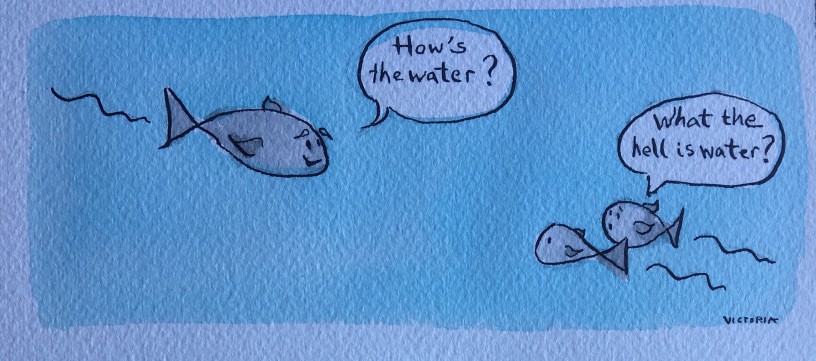
Jesse and I discuss these ideas on the Share Life podcast, in the following episode.
"Alasdair Macintyre is saying, when we have debates... you have people that utterly lack the context of which these ethical theories derive. And therefore we speak past each other and end up in shouting matches and it comes down to who shouts better not who has the better argument." - Jesse Nigro, Living in an After Virtue Emotivist World, Share Life Podcast
3. Ideology: Narrow Vision On Solving a Problem Blinds Us To Reality
From our morally impoverished landscape, we now have ideology emerging as our third part.
How do we replace our moral degeneration and justify our power plays? Ideology.
How do we make whatever we want to do, good? Ideology.
Ideology is a religious-like belief system that revolves around a core idea. It’s a story of the world. It's a narrow narrative and a lens of how we make sense of things. Often, this focus can identify and help us solve problems but it also often turns into a destructive justification for evil while believing we’re doing good.
Here’s a quote from Aleksandr Solzhenitsyn in the Gulag Archipelago, about ideology.
“Ideology – that is what gives evil doing its long-sought justification and gives the evildoer the necessary steadfastness and determination. That is the social theory which helps to make his acts seem good instead of bad in his own and others’ eyes, so that he won’t hear reproaches and curses but will receive praise and honors. That was how the agents of the Inquisition fortified their wills: by invoking Christianity; the conquerors of foreign lands, by extolling the grandeur of their Motherland; the colonizers, by civilization; the Nazis, by race; and the Jacobins (early and late), by equality, brotherhood, and the happiness of future generations.”
In David Koyzis's book, Political Visions and Illusions, he surveys the most dominant ideologies in our country.
He claims that ideologies become forms of idolatry, where the thing they espouse becomes the most important thing — they become a god we worship.
- Liberalism (superiority of individual sovereignty)
- Democratism (superiority of collective participation)
- Nationalism (superiority of the nation)
- Socialism (superiority of communal ownership)
- Conservatism (superiority of the past)
Koyzis's argument is not that these ideologies don’t have a place but rather they need to be integrated into their proper place inside a higher order. Otherwise, they can quickly and easily distort and corrupt individuals, groups, and societies.
Explore this framework and several of the ideologies, in my conversation with Koyzis, below.
One helpful framework Koyzis provides is a way to understand the difference between a conservative and a progressive.
Conservative << — Ideology — >> Progressive
- So we have conservative liberals and progressive liberals.
- We have conservative nationalists and progressive nationalists.
- We have conservative socialists and progressive socialists.
This framework clarifies what is inherently a confusing game of rhetoric in our political discourse.
And, when we're caught up in ideology, it's often helpful to walk through the process of how we got into the ideology, and the way that belief system was constructed. Brent Lee, who was deeply in some conspiratorial thinking, shares his story of how this unfolded for him.
4. The Dominance of the “Autonomous Self” Ideology in America and the West
The autonomous self is a distorted and negative view of freedom. It is this vision of what it means to be human that we are rapidly moving towards, that our technology dynamic makes possible, and that our society incentivizes.
This definition of the autonomous self comes from the book, Christianity's Surprise by C. Kavin Rowe.
“the story of the autonomous individual says that the "I" is self-sovereign, emerges into without any prior obligations that have been placed on it, and chooses the laws it has for itself...
...imagine an isolated individual, unconnected by any necessity to anything else at all and able to make for itself the life it chooses to make. The will of this individual is inherently free and chooses from an original position of freedom what sort of attachments and commitments it will have...
Nothing can be forced upon the autonomous self from without that it does not agree to from within. When someone or something— a person, other people, various groups, governments, and so forth-tries to force the "I" to accept something it does not will to accept, the "I" is violated. The border between the "I" and the world of self-chosen obligations has been broken, and the invaders have entered territory that is not theirs.”
This dominant ideology is corrosive to us as individuals and society. We’re all entangled in it to some degree, some more than others.
Rowe continues.
“that the story of the autonomous individual cannot fund life together. It will break down and eventually fail, and the lives we've hoped to live together will come apart.”
Kavin goes on to explore how this plays out in our society in the following passage.
“Lawyers have a central place in the story of the autonomous individual precisely because they must exist to enforce the contracts that we agree to but to which we are not truly bound. We have to force people to do what we know they don't really have to do as autonomous individuals.”
“Law, and the force that backs it, are conceived and used as resistance to the implosion of a society that believes the story of the autonomous individual.”
All of this is descriptive and helpful for making sense of the political polarization and conflict that has, is, and will continue to play out. As we look around in 2023, it is the legal system that is the bulwark that holds our society together right now. And it is the legal system that is villainized by its antagonists. But its also a sign of how morally corrupt we've become when the legal system is what's holding us together.
Kavin Rowe was on my podcast. We discussed Christianty's Suprise and his other books in the following conversation.
5. Assume Positions! Identity Drives Our Behavior
Our societal role-play drives corrosive effects and fuels the cycle of retaliation.
Think of society like we’re all in a play, acting different parts of the story. We see the play unfolding. Because our ethics and moral grounding are shattered and shallow, we have no inherited and grounded identity. We make our own identities, and we step into different roles. Often; we see others playing their roles and we react to them by stepping into a counter role — still part of the machine. These roles give a sense of order to the chaos and a sense of meaning to our lives.
Here are some stock characters that arise in this context, according to Alasdair MacIntyre
- The Manager
- The Bureaucrat
- The Therapist
- The Aesthete
- The Scientist
- The Conservative Moralist
Which of these roles are you playing?
Something is wrong and we might sense it, but we lack what’s needed to truly discover what’s missing and how to live it out. And we end up perpetuating the problems, sometimes unknowingly, other times on purpose. Both sides of the political spectrum fail to realize that they're two sides of the same coin. We see one side doing bad things so we fight back but we fail to see we’re doing the same bad things, but in a different way.
This fuels the cycle of retaliation. They hit me, so I hit back. And we spiral into further brokenness, blame, and revenge-seeking. Because we’re ideologically oriented and not morally grounded (in a transcendent way), we reactively continue to spin the merry-go-round of this cycle.
Eventually, we come to embrace our role.
In the third edition prologue of his book, After Virtue, Alasdair MacIntyre describes the two parts of liberalism which includes its counterpart, the moralist conservative. This is an example of this dynamic at play.
“That conservatism is in too many ways a mirror image of the liberalism that it professedly opposes. Its commitment to a way of life structured by a free market economy is a commitment to an individualism as corrosive as that of liberalism. And, where liberalism by permissive legal enactments has tried to use the power of the modern state to transform social relationships, conservatism by prohibitive legal enactments now tries to use that same power for its own coercive purposes.”
MacIntyre continues, placing this insight into this set of roles that came before it.
“[we have] notable characters in the cultural dramas of modernity: that of the therapist, who has in the last twenty years become bemused by biochemical discoveries; that of the corporate manager, who is now mouthing formulas that she or he learned in a course in business ethics, while still trying to justify her or his pretensions to expertise; and that of the aesthete, who is presently emerging from a devotion to conceptual art. So the conservative moralist has become one more stock character in the scripted conversations of the ruling elites of advanced modernity. But those elites never have the last word.”
We all become gears in the machine. We think we’re fighting against the machine, but we’re keeping the machine going.
If you’re interested in learning more about these roles, check out Alasdair MacIntyre’s book After Virtue, or watch the following video recap that explores these stock characters.
6. The Totalitarian Machine
We want to change our essential nature. We want to bend reality in our image.
The machine helps us do that. So, we have created this machine. We’re all working on different parts of it. Some of us are working on it while thinking we’re fighting the machine. But as the Architect in The Matrix Reloaded says to Neo, the One, is simply part of the machine.
"Your life is the sum of a remainder of an unbalanced equation inherent to the programming of the matrix. You are the eventuality of an anomaly, which despite my sincerest efforts I have been unable to eliminate from what is otherwise a harmony of mathematical precision. While it remains a burden assiduously avoided, it is not unexpected, and thus not beyond a measure of control. Which has led you, inexorably, here."
Paul Kingsnorth writes extensively about the machine. Over the years and through his studies, he became a Christian after exploring many alternatives and resisting the idea. Here’s how he describes the machine.
“The ultimate project of modernity, I have come believe, is to replace nature with technology, and to rebuild the world in purely human shape, the better to fulfill the most ancient human dream: to become gods. What I call the Machine is the nexus of power, wealth, ideology and technology that has emerged to make this happen.“
At the heart of the machine, is the answer to the question, what does it mean to be human?
Kingsnorth expands…
“[the machine's] modus operandi is the abolition of all borders, boundaries, categories, essences and truths: the uprooting of all previous ways of living in the name of pure individualism and perfect subjectivity. We are not made by the world now; we make it. And we can make anything we want. Or so we want to believe.”
The machine is a societal and technological manifestation of the “autonomous self” ideology. And it is totalitarian in its core.
"What totalitarian ideologies therefore aim at is not the transformation of the outside world or the revolutionizing transmutation of society, but the transformation of human nature itself." - Hanah Arendt, The Origins of Totalitarianism
Things are rapidly unfolding. There’s probably not much we can do to stop the machine as we face this together (Explore the Machine, through the eyes of Paul Kingsnorth here).
There are things we can do to live in the machine but not be a part of the machine (in the world, but not of the world). It's not simply to break the machine, but rather to reunite with our creator, and rejoin the community of God. The first step is to return to the point where this crisis all began.
But instead of taking that step, we'd rather grab the steering wheel and drive the machine.
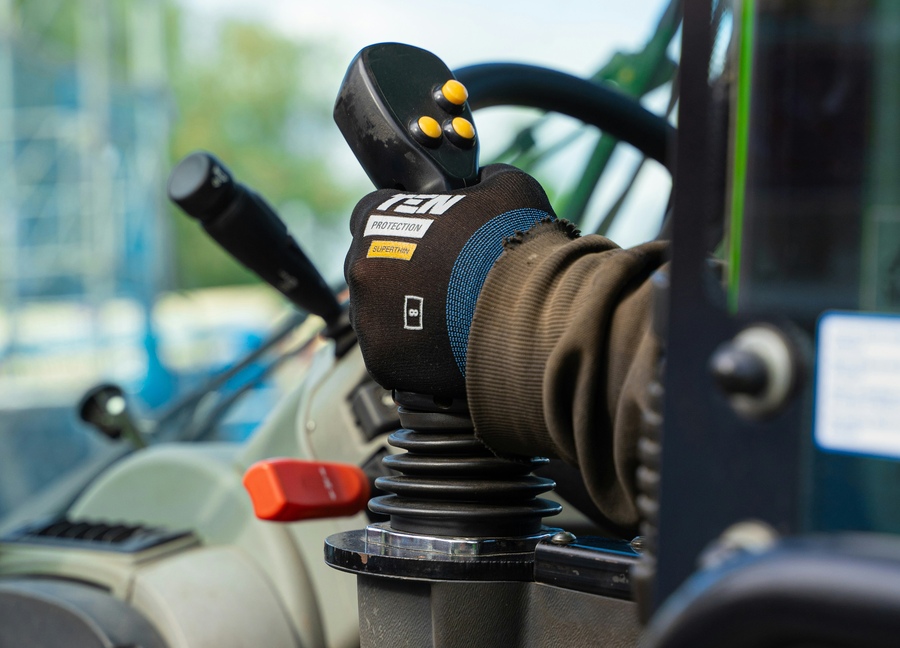
7. Driving the Totalitarian Machine
Now that we have a machine. Who is going to drive it?
We'll do it, together.
"The people most drawn to power are usually the least fit to wield it. If we want leaders with integrity, we need to stop elevating narcissists, Machiavellians, and psychopaths. Exploiting others for personal gain is a violation of duty." - Adam Grant
In my discussion with Jesse Nigro, he shared the following insight about our societal vulnerability.
"MacIntyre is saying, when you pretend there's no such thing as a Telos (transcendent purpose/vision) what happens is you get the sort of Nietzschean reaction, which is to say that, someone with a will to power is going to come along and apply their will to this situation and we'll all just be doing what they think we ought to do, regardless of what the sort of surfacy, cover story is."
If our morality and society are all a shallow cover story, and we’re “playing house”, someone can come along and step outside the rules to manipulate the system for personal gain. They can take over the machine and because of all the dynamics at play, it will seem impossible for us to do anything about it other than participate in it.
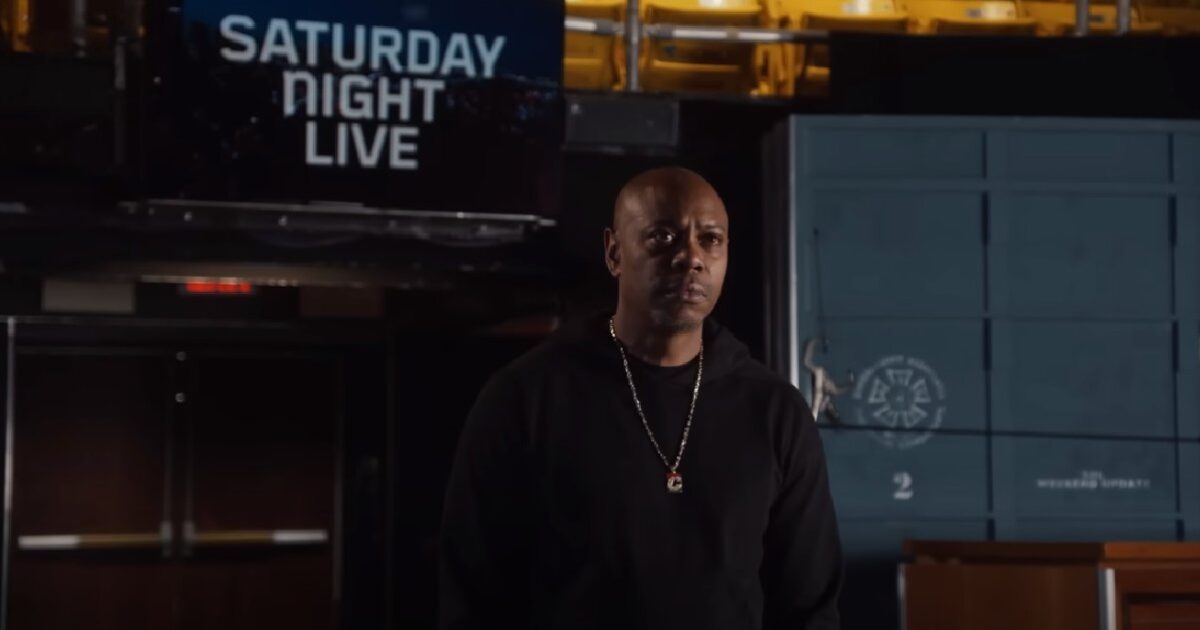
The famous Dave Chapelle SNL comedic bit comes to mind.
“Why is Trump so popular? Because he said the system the rigged. And he knows the system is rigged because he uses the rigged system.”
Trump called out the system, gave his witness, and exposed the hypocrisy of the Democrats who are also using the system, but doing it secretly.
Trump said he’d drain the swamp but he is the Swamp Thing. Trump is doing everything the swamp does, he’s just not hiding it.
Chapelle continues.
'No one had ever seen somebody come from inside of that house outside and tell all the commoners we are doing everything that you think we are doing inside of that house. And he just went right back in the house and started playing the game again."
The explicit corruption of Trump has exposed the corrupt aspects of the system.
But it’s also opened Pandora’s box for others to follow in his footsteps. It's opened the door for us all to follow suit.
If we’re only doing (or not doing) things because they are illegal or not, and not whether it’s right or wrong, then unveiling the facade of the system means we can unleash ourselves to do whatever we want. And without virtue, we’ll likely embrace vice.
The wolves are now welcome in the henhouse.
And that gets to the heart of the problem.
James, the brother of Jesus said this is what causes war and conflict.
“What is the source of wars and fights among you? Don’t they come from your passions that wage war within you? You desire and do not have. You murder and covet and cannot obtain. You fight and wage war. You do not have because you do not ask. You ask and don’t receive because you ask with wrong motives, so that you may spend it on your pleasures.” - James 4:1-3 CSB
War outside of us is a result of war inside of us coming out.
This is the essence of the good news of Jesus. Jesus wants to get the hell out of us so we don't create that hell around us. He wants us to enter back into the community of God, as Tim Mackie explains in the following video, in detail.
Wrapping Up
We've explored the fundamental issues plaguing Western society, including the layers of brokenness that have co-opted individuals into willing participants.
We began by highlighting the concept of sin and the breakdown of the relationship with the source of life, leading to moral impoverishment and ideological conflicts. The rise of the "autonomous self" ideology further erodes societal bonds, driving individuals into predefined roles that fuel retaliation and perpetuate the cycle of brokenness. Ideology emerges as a justification for evil, blinding us to reality. The Totalitarian Machine before us is a societal manifestation of the autonomous self ideology that seeks to replace nature with technology and reshape the world in human image.
Ultimately, we must return to our transcendent purpose and moral grounding, as the lack thereof allows for the manipulation of the system by those with a will to power, leading to further corruption and conflict within society.
